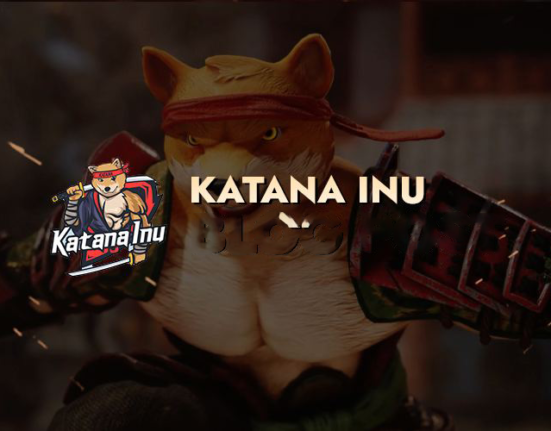Gaming has always been a popular and engaging entertainment, but it has always had limitations and challenges. For instance, players often have no real ownership or control over their in-game items, which are subject to the whims of centralized platforms and developers. Moreover, players have limited ways or no ways to monetize their skills and achievements, as most games don’t reward them adequately or fairly for their time and effort. However, web3 gaming has changed all that.
It uses blockchain technology in video games to enable true ownership for players and unlock new revenue models for developers and studios. With blockchain, play-to-earn games enable the creation and exchange of non-fungible tokens (NFTs) representing in-game assets, skills, achievements, and other game-related elements. Players who own these in-game items can decide to sell them on open marketplaces, transfer them to other games, or monetize them in various ways.
The possibilities are numerous!
This article will examine the rise of tokenization and how this new play-to-earn model is gradually reshaping the gaming industry. It will also help understand the in game governance system and its benefits
Understanding Web3 Gaming
Web3 has unleashed a new era of gaming that leverages blockchain technology to empower players and developers with true ownership, interoperability, and monetization of in-game assets and achievements. One of the main benefits of this new model of games for players is that they can have true ownership of their in-game limited items rather than being locked into closed ecosystems controlled by centralized platforms and developers.
This means that players can buy, sell, and trade virtual items on open marketplaces, where they can capture the value of their time and effort. Moreover, players can use their items across different games or platforms thanks to the interoperability of NFTs and cryptocurrencies. This creates a more diverse and engaging gaming experience for players.
Play-to-earn also unlocks the opportunity for new revenue models as developers can offer in-game assets to players (as NFTs), allowing them to raise funds to build the game before and during its development. With the approach to fundraising, developers can quickly build hype around their projects and gain early support.
In Game Governance System
Web3 gaming also offers In game governance systems which provide numerous benefits for both players and game developers. Here are some key advantages:
In-game governance systems give players a voice and allow them to actively participate in shaping the game’s rules, mechanics, and direction.
Governance systems foster a strong sense of community and ownership among players. They create a platform for open discussions, collaboration, and collective decision-making, encouraging players to invest their time and effort into the game’s success.
With an in-game governance system, rules and decisions are made in a transparent manner. Players can have visibility into the decision-making process and understand how and why certain changes or updates are implemented.
Tokenization in Gaming
Tokenization means converting real-world or digital assets into tokens that can be stored, transferred, or exchanged on the blockchain. Tokenization has many benefits in the gaming context, such as:
- Enabling true ownership of in-game assets: Players can own their in-game items as NFTs, which are stored in their web3 wallets and can be transferred or traded without intermediaries or restrictions.
- Enhancing the value and utility of in-game assets: Players can use their NFTs across different games or platforms, creating new possibilities for gameplay and interaction. For example, a player can use their NFT character from one game to play another game or use their NFT land from one game to host events or activities for other players.
- Creating new revenue streams for game developers: Game developers can offer in-game assets to players as NFTs, allowing them to raise funds to build their game before or during its development. Game developers can also earn royalties from the sales of in-game items on open marketplaces since they are built directly into the smart contracts powering those NFTs.
Tokenization can be applied to various in-game elements, such as:
- In-game assets: These are items that players can use or interact with, such as weapons, armor, vehicles, or cosmetics. These items can be tokenized as NFTs and have unique properties and attributes that make them scarce and valuable.
- Skills and achievements: These are abilities or accomplishments that players can acquire or unlock in the game, such as skills, levels, badges, or trophies. These elements can be tokenized as fungible tokens (FTs) and have standardized properties and values that make them interchangeable and divisible.
- Game-related elements: These aspects relate to the game itself or its ecosystems, such as characters, stories, lore, or governance. These elements can be tokenized as either NFTs or FTs and have various functions and roles that make them relevant and influential.
Monetizing Skills and Achievements
P2E games and tokenization enable players to monetize their skills and achievements through different avenues. These reward/monetization systems may include:
- Earning tokens by playing the game: Players can earn tokens by completing quests, winning battles, or exploring the game world. These tokens can be used to buy more in-game items or exchanged for other cryptocurrencies or fiat money.
- Earning tokens by creating content: Players can earn tokens by creating content for the game, such as designing levels, characters, or items. These tokens can be used to access more features or content in the game or sold to other players who want to use them.
- Earning tokens by lending your items: players can also lend their items (NFTs) to other players and earn tokens while others are using their items in game.
- Earning tokens by governing the game: Players can earn tokens by participating in the game’s governance, such as voting on proposals, resolving disputes, or providing feedback. These tokens can be used to influence the direction or development of the game or staked to earn more rewards.
Players can also monetize their skills and achievements by selling, renting, or trading their tokens or in-game items on open marketplaces. For example, a player who owns a rare NFT character or weapon can sell it for a high price to another player who wants it.
Play-to-Earn Models
Play-to-earn models are emerging as a new way of engaging and rewarding players 一 they offer players more agency and autonomy over their gaming experience and more opportunities to earn income from playing games.
Unlike traditional gaming models that charge players upfront or monetize through in-game purchases and ads, P2E models present new reward systems for players based on their engagement and contribution. Players can earn tokens or other incentives that have real-world value by playing the game, achieving milestones, or creating content but most of these games focus on pay to win games while Katana Inu is against that policy and is reshaping the play to earn model with providing a free to play game with a unique ranking system. Players can earn according to their rankings. Players are also able to forge NFTs which can be used as in-game cosmetics.
These gaming models can benefit both players and game developers. Players can have fun and make money simultaneously, while game developers can attract and retain a larger and more loyal player base. This approach to gaming can also foster positive network effects, social capital, and user-generated content that enhance the game ecosystem and its value proposition.
The Future of Play-to-Earn: What’s Coming?
As blockchain technology and web3 gaming become more popular and accessible, play-to-earn models will likely grow and diversify. Players can expect to see more games offering different gameplay, rewards, and experiences that suit their interests and needs.
New platforms and tools will also emerge and evolve to support this growing gaming ecosystem. As upcoming games in this space look for better ways to help their players trade, store, and discover interesting in-game assets and activities. We anticipate coming to tools that enhance the P2E experience and provide better security and transparency.
Katana Inu is working on mass adoption of blockchain gaming by keeping the game free to play. The team is also working on making partnerships with major web2 firms like Lootboy and many more to create awareness of web3 games among traditional gamers.
Moreover, P2E models will not be confined to the gaming sector alone. We can expect collaboration with other industries and domains that can leverage blockchain technology and tokenization.The future looks bright for tokenized games where players will own the games in terms of tokenz.













Leave feedback about this